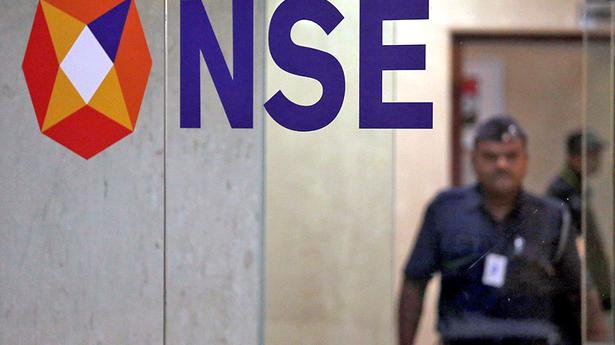Explained | Did NSE give preferential access to some brokers?
Are there loopholes in the trading system that may be manipulated? What are SEBI guidelines on co-location?
Are there loopholes in the trading system that may be manipulated? What are SEBI guidelines on co-location?
The story so far: The issue of co-location has come into the limelight once again in the wake of the latest order by the markets regulator sanctioning former National Stock Exchange (NSE) MD and CEO Chitra Ramkrishna over decisions taken by her under the alleged influence of a mysterious ‘yogi’. In its February 11 order, the Securities and Exchange Board of India (SEBI) had observed that the fact of Ms. Ramkrishna having shared confidential internal NSE information with an unknown person had come to light during the regulator’s probe of the co-location matter. SEBI had passed its first order after adjudicating the co-location case in April 2019, when it had fined the NSE a sum of ₹625 crore. The regulator had also at the time banned OPG Securities and its three directors from the securities market for five years and imposed a fine of about ₹15 crore.
What is co-location all about?
In 2009, the NSE started to offer co-location services to members of the exchange. Co-location allows a member to set up his server in a specifically earmarked data centre within the NSE’s exchange premises for a certain price. And even though this data centre is located in a different wing from the exchange’s trading systems, the relative proximity allows members wishing to gain access to the entirety of buy and sell orders sent to the exchange by market participants, or tick-by-tick data, a headstart of a few microseconds or nanoseconds. However, these brokers technically will only be able to carry out automated trading using algorithms since the speed and volume of data arriving is too high to process manually. These so-called ‘high-frequency’ traders also often analyse the data in its entirety in order to refine their trading strategies, which is then incorporated into the algorithms that execute the automated trades.
In Focus podcast | Chitra Ramkrishna and the story of the ‘faceless yogi’
Other investors including retail participants, on the other hand, view a snapshot of market information that is periodically broadcast to them by the NSE on their broker platforms.
Is there anything illegal about co-location?
Co-location per se is not illegal. Stock exchanges across the world allow the practice to flourish as a paid service. The SEBI, in fact, had allowed exchanges to offer co-location in 2008. So, the NSE co-location case has to do with something else.
A whistleblower in 2015 alleged that some exchange members were able to manipulate NSE’s co-location services to their own benefit with the support of certain officials in NSE’s IT department. It should be noted that initially NSE disseminated order data to users of its co-location service through the TCP-IP or Internet Protocol technology that as a technology prioritises first comers. It is said that under this older technology members who logged into NSE’s servers first and into servers with the least load were able to access data coming from the exchange before others. Some members also attempted to tap into NSE’s backup server to bypass competition and are said to have employed various other tactics aimed at crowding out other members.
Also read | Emails between former NSE MD Chitra Ramkrishna & ‘yogi’, a coded puzzle for investigators
SEBI, however, has not yet been able to establish that the NSE colluded in such manipulation. It has only penalised the exchange for failing to prevent the misuse of its co-location service. NSE also made changes to the way it disseminated data to users of its co-location services. In 2014, it introduced Multicast Protocol transmission under which data from the exchange was multicast and the members subscribed to a specified address to receive the tick-by-tick data.This ensures that all members availing the co-location facility receive the data streamed by the exchange on a service at the specified address.
Do co-location services give an unfair advantage to some?
The issue of co-location has caused many to question the fairness of today’s market infrastructure. Supporters of co-location services argue that it allows quicker dissemination of market data and improves market liquidity. They also state that the service is available to anyone who is willing to pay the appropriate fee. It must also be noted that the other connectivity options to access NSE trading data, including the V-SAT and leased line, too are based on a fee.
Editorial | Remiss regulator: On the NSE fiasco and protecting small investors
Critics of co-location, however, believe that it offers preferential access to certain market participants at the cost of others. This, they argue, goes against the fundamental purpose of exchanges, which is to ensure that securities are sold to the highest bidders among all market participants.
Comment | L’affaire NSE: is corporate governance an illusion?
In short, they contend that market efficiency is more important than speed. Some critics have even argued that exchanges should regulate the pace of transmission of order data in such a way that all market participants receive the data at the same time.
- The issue of co-location has come into the limelight once again in the wake of the latest order by the markets regulator sanctioning former National Stock Exchange (NSE) MD and CEO Chitra Ramkrishna over decisions taken by her under the alleged influence of a mysterious ‘yogi’.
- Co-location per se is not illegal. Stock exchanges across the world allow the practice to flourish as a paid service.
- Critics of co-location, however, believe that it offers preferential access to certain market participants at the cost of others.
For all the latest business News Click Here

